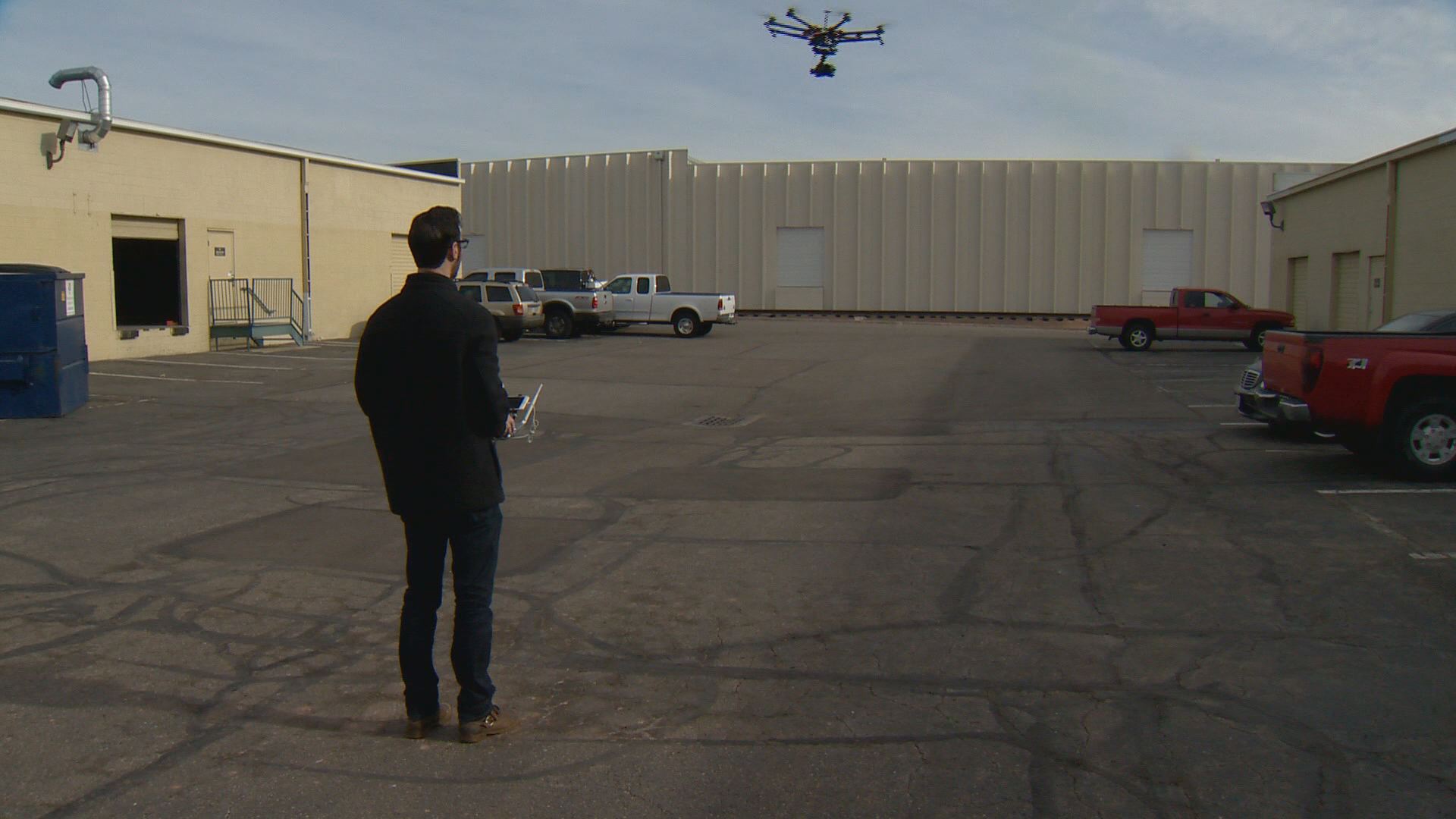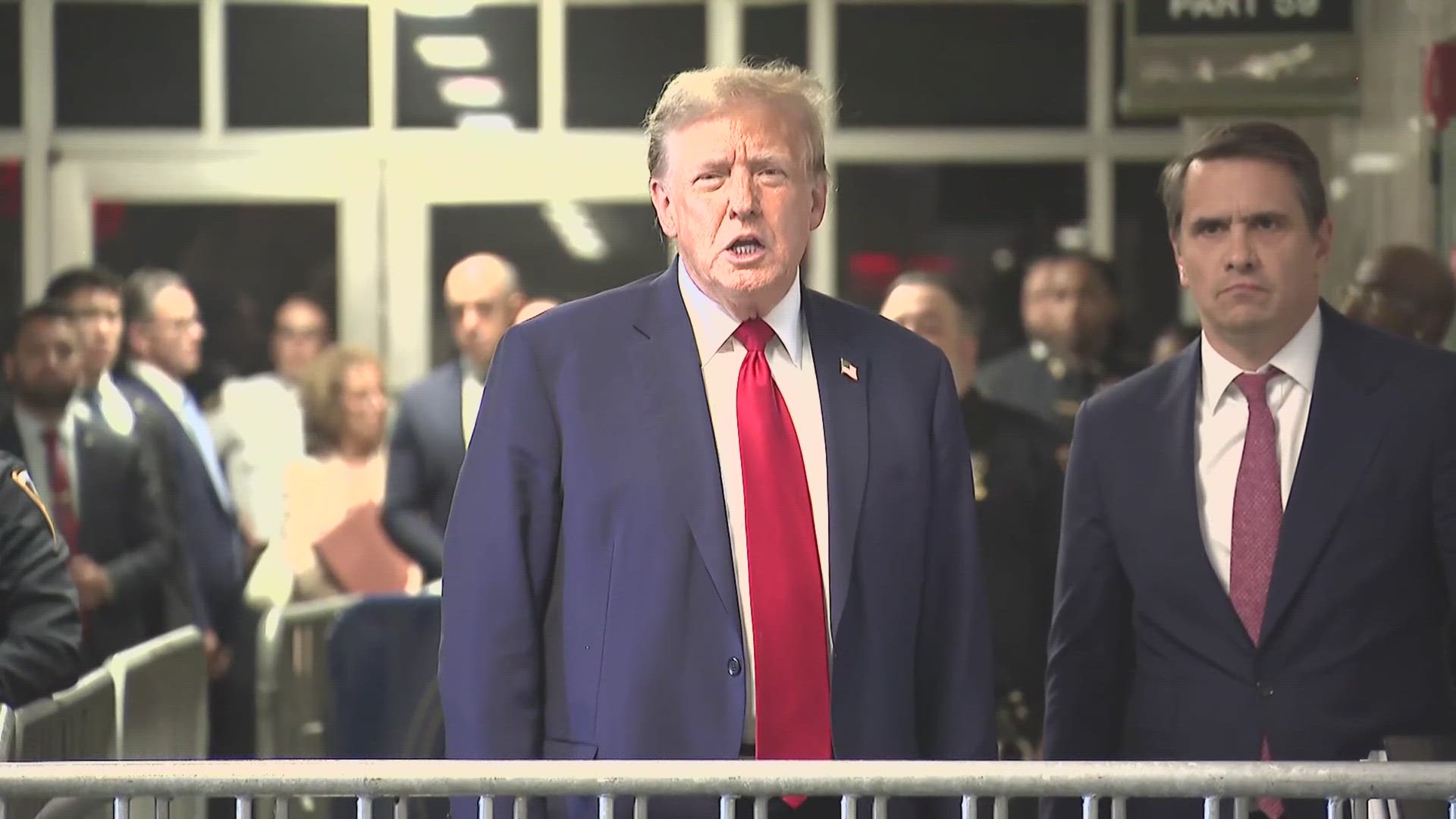New rules for commercial drone pilots kicked in Monday, making it legal to use the unmanned aerial vehicles without special permission from the government if the pilot has a license.
The Federal Aviation Administration is requiring people who want a commercial license to be over age 16, pass a 70-question test at an FAA-approved facility, pass a background check and follow strict rules.
More than 3,300 people registered to take their exam Monday nationwide. The FAA estimates within one year, the number of licensed drone pilots will exceed 170,000.
Kerry Garrison, co-owner of Multicopter Warehouse in Castle Rock, is one of the first in Colorado to take the commercial drone pilot's license exam. The license is good for two years.
If someone wants to use a drone for business, they'll have to follow the new rules. Drones aren't new and the technology took off years ago, but the regulations are finally catching up.
"It has been a grey area if you're shooting footage with a drone and you're charging for it, do you have to have a license to do that or is it just a hobby," said drone owner Marc Headley.
As of Monday, it's a grey area no more.
"There's kind of an envelope of rules that are now in place. There's an altitude limit of 400 feet, there's no flying outside the range that you can visually see it, there's a number of things about not flying over people for example. That's a biggie because things can go wrong and you don't want anyone to get hurt. No night flying is another one," Garrison said.
The rules come with some exceptions if the pilot gets a waiver from the FAA, which could take 90 days. Until now, commercial drone pilots could only fly legally with special FAA permission.
"The FAA doesn't have drone police," Garrison said.
While he said someone isn't looking over your drone's every move, if someone files a complaint against the pilot or if there's an accident, the FAA will investigate.
"And if you're not certified, you don't have that license in hand, you can face penalties up to about $50,000," he said.
Compare that hefty penalty to the cost of a $150 license test.
"No different than anybody can go out and get a driver’s license but if you want to make money at it, you need a commercial license," Garrison said.
The new regulations don't pertain to the hobbyist, like if someone uses a drone to take video or pictures of their kids. However hobbyist pilots need to register themselves for $5 with the FAA if the drone weighs more than .55 lbs.
Commercial pilots have to register each aircraft with each drone's serial number.
Garrison sees the use of drones expanding to businesses not known for using remote controlled devices.
"Our biggest business last year was roof inspectors. Especially here in Colorado, it could be very dangerous in different parts of the year getting up on roofs doing inspections," he said.
FAA Commercial Drone Rules: http://www.faa.gov/uas/media/RIN_2120-AJ60_Clean_Signed.pdf
FAA Hobbyist Drone Rules: https://www.faa.gov/uas/getting_started/fly_for_fun/
Register Your Drone: https://registermyuas.faa.gov/


